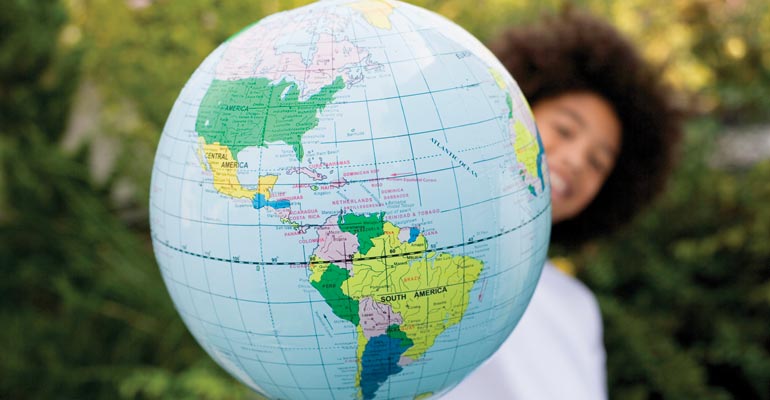Whether you adopted your child from another country, or from a different cultural community within the U.S., “going back” can help her connect with her roots, boost self-esteem, and provide a strong foundation for building identity.
Homeland trips require careful thought — both in terms of the logistics, and the conversations you’ll have with your child before, during, and after the journey. Ponder the following questions before you make your travel plans.
1. What’s the right age to travel?
Dr. Jane Liedtke, of Our Chinese Daughters Foundation, recommends a first trip between the ages of 6 and 10, when children are open to cultural differences and less judgmental of the poverty they might see than in the middle-school years, when peer-group judgments can rule a child’s psyche.
With each child the optimal timing of the trip will vary, and maturity and personality are big factors. Personal finances also play a role in international travel. If a homeland visit is not financially feasible for your family right now, use the present to learn about your child’s heritage.
2. How should you prepare your child?
Family talks about the trip should begin a year before travel. Books and videos can get everyone talking about the birth country and about adoption. Does your son have fears associated with such a trip? Does your child understand what will happen on the trip, whom he will meet, and that he will be returning home with you? Your child’s reactions can help you gauge his emotional readiness and expectations.
3. Is the trip about cultural pride or adoption?
What is the purpose of the trip? If it is exposure to a culture and a place, enjoy the sights. Many people choose to create positive memories of their child’s homeland on a first trip, and later delve into adoption issues, visit a foster mother or orphanage, or even meet birth relatives. Just seeing the land where your child started life can be a positive experience.
Visits to orphanages and meetings with birth siblings and birth parents, on the other hand, require serious thought and planning. A child should have a firm grasp of her birth and adoption story, and be able to express her feelings about it.
4. Are you ready for unexpected experiences or information?
When pursuing a child’s personal history on a homeland visit, be ready for the unexpected. What if you find out information that is different from what you have previously told your son or daughter? What is your responsibility to a newly discovered birth parent, or your child’s biological siblings? Knowing when to pull back from situations in which your child seems uncomfortable will help your child feel safe. Set up a signal for “I need to get out of here,” and observe your child’s cues.
5. Should you travel with a group or with your family?
Families report that both types of travel work well. Can you follow a routine and a schedule set by someone else? Do you relish the comfort of a group and the companionship of others going through the same thing? For many kids, travel-mates with the same history and past are a powerful benefit. In any case, hire an interpreter for important meetings.
6. What’s your backup plan?
Be prepared to cut back your daily schedule if need be. Find alternative activities, and offer them to your child without blame or repercussions. Understand that positive AND negative experiences are all part of the process of learning about your child’s culture of origin. A trip doesn’t have to be perfect to be effective or memorable.



